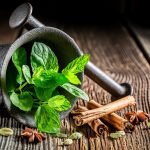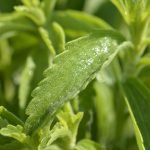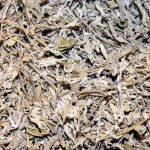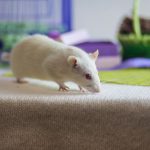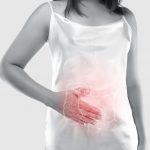Any Alcohol Intake is Linked to an Increased Risk of Atrial Fibrillation
NODE SMITH, ND
A study of nearly 108,000 people has found that people who regularly drink a modest amount of alcohol are at increased risk of atrial fibrillation, a condition where the heart beats in an abnormal rhythm.
The study, published in the European Heart Journal [1], found that, compared to drinking no alcohol at all, just one alcoholic drink a day was linked to a 16% increased risk of atrial fibrillation over an average (median) follow-up time of nearly 14 years. This means that while four non-drinkers in 100 might develop atrial fibrillation over the period of the study, five per 100 might develop the condition if they consumed alcohol starting with slightly more than an alcoholic drink a week and more than 75% of them consumed up to one drink a day [2]. The researchers categorized one alcoholic drink as containing 12 g of ethanol, which is the equivalent of a small (120 ml) glass of wine, a small beer (330 ml) or 40 ml of spirits.
It is well known that people who drink a lot of alcohol regularly are at increased risk of developing heart failure, and heart failure can increase the incidence of atrial fibrillation. Several studies have shown a slightly higher risk of heart problems for people who never drink alcohol; they often show that this risk reduces for people who drink a modest amount, and then rises sharply the more alcohol is consumed, creating a ‘J’ shape on graphs. Until now, it has not been clear whether this was also the case for atrial fibrillation.
However, in the current study led by Professor Renate Schnabel, a consultant cardiologist at the University Heart and Vascular Center, Hamburg-Eppendorf (Germany), researchers found that although low doses of alcohol were associated with a reduced risk of heart failure compared to non-drinkers, a similar ‘J’ shape reduction in risk was not seen for atrial fibrillation. This suggests that the increased risk of atrial fibrillation among people drinking small amounts of alcohol was not triggered by heart failure.
Prof. Schnabel said: “To our knowledge, this is the largest study on alcohol consumption and long-term incidence of atrial fibrillation in the community. Previous studies have not had enough power to examine this question, although they have been able to show a relationship between alcohol intake and other heart and blood vessel problems, such as heart attack and heart failure. In our study, we can now demonstrate that even very low regular alcohol consumption may increase the risk of atrial fibrillation.
“These findings are important as the regular consumption of alcohol, the ‘one glass of wine a day’ to protect the heart, as is often recommended for instance in the lay press, should probably no longer be suggested without balancing risks and possible benefits for all heart and blood vessel diseases, including atrial fibrillation.”
The researchers analyzed information on 107,845 people taking part in five community-based studies in Sweden, Norway, Finland, Denmark and Italy. The participants underwent medical examinations at the time they joined the studies between 1982 and 2010 and provided information on their medical histories, lifestyles (including alcohol and tobacco consumption), employment and education levels. A total of 100,092 participants did not have atrial fibrillation when they enrolled and their median age was nearly 48 years (range 24-97 years).
During the median follow-up period of nearly 14 years, 5,854 people developed atrial fibrillation. The associations between alcohol consumption and the risk of atrial fibrillation were similar for all types of alcoholic drinks and for men and women.
In addition to the 16% increased risk of atrial fibrillation compared to non-drinkers seen in people who consumed only one alcoholic drink a day, the researchers found that the risk increased with increasing alcohol intake; up to two drinks a day was associated with a 28% increased risk and this went up to 47% for those who consumed more than four.
The exact mechanisms by which modest amounts of alcohol could trigger atrial fibrillation are not known. Studies have shown that heavy drinking over a short period of time can trigger ‘holiday heart syndrome’ in some people, and in some atrial fibrillation patients, small amounts of alcohol can trigger arrhythmia episodes.
Limitations of the study include the fact that study participants reported the type and quantity of alcohol they drank and this could lead to under-reporting; the information available did not enable the researchers to look at the effects of binge drinking; some episodes of atrial fibrillation can be asymptomatic and so may not have been reported; only adults across Europe were included in the analyses and so it may not be possible for the results to be generalized to other populations; as the study was observational, it can show only an association between alcohol intake and atrial fibrillation and not that alcohol causes atrial fibrillation.
In an accompanying editorial [3], Jorge A. Wong and David Conen from the Population Health Research Institute at McMaster University, Hamilton, Canada, write that the research “makes an important contribution to our understanding of the relationship between alcohol intake and incident AF, in particular at the lower spectrum of alcohol consumption. A significant relationship between alcohol and AF was identified, and even small quantities of alcohol were associated with an increased, albeit small, risk of incident AF.
“Together with a recent randomized trial showing that a reduction in alcohol intake led to a reduction in AF recurrence, these data suggest that lowering alcohol consumption may be important for both prevention and management of AF. Importantly, any reduction in low-to-moderate alcohol consumption to potentially prevent AF needs to be balanced with the potentially beneficial association low amounts of alcohol may have with respect to other cardiovascular outcomes . . . The net clinical benefit of consuming low amounts of alcohol requires further study, ideally in adequately powered randomized trials. Until then, each individual has to make its own best educated decision as to whether consuming up to one alcoholic drink per day is worthwhile and safe.”
Notes:
[1] “Alcohol consumption, cardiac biomarkers and risk of atrial fibrillation and adverse outcomes,” by Dora Csengeri et al. European Heart Journal. doi:10.1093/eurheartj/ehaa953 [2] Data on absolute risk are not given in the research paper. The absolute risk was calculated using further information from the researchers and the University of Cambridge Winton Centre for Risk and Evidence Communication RealRisk web tool: https://url.wintoncentre.uk/p6lcb [3] “Alcohol consumption, atrial fibrillation, and cardiovascular disease: finding the right balance,” by Jorge A. Wong and David Conen. European Heart Journal. doi:10.1093/eurheartj/ehaa9551. Dora Csengeri, Ngoc-Anh Sprünker, Augusto Di Castelnuovo, Teemu Niiranen, Julie Kk Vishram-Nielsen, Simona Costanzo, Stefan Söderberg, Steen M Jensen, Erkki Vartiainen, Maria Benedetta Donati, Christina Magnussen, Stephan Camen, Francesco Gianfagna, Maja-Lisa Løchen, Frank Kee, Jukka Kontto, Ellisiv B Mathiesen, Wolfgang Koenig, Blankenberg Stefan, Giovanni de Gaetano, Torben Jørgensen, Kari Kuulasmaa, Tanja Zeller, Veikko Salomaa, Licia Iacoviello, Renate B Schnabel. Alcohol consumption, cardiac biomarkers, and risk of atrial fibrillation and adverse outcomes. European Heart Journal, 2021; DOI: 10.1093/eurheartj/ehaa953

Node Smith, ND, is a naturopathic physician in Humboldt, Saskatchewan and associate editor and continuing education director for NDNR. His mission is serving relationships that support the process of transformation, and that ultimately lead to healthier people, businesses and communities. His primary therapeutic tools include counselling, homeopathy, diet and the use of cold water combined with exercise. Node considers health to be a reflection of the relationships a person or a business has with themselves, with God and with those around them. In order to cure disease and to heal, these relationships must be specifically considered. Node has worked intimately with many groups and organizations within the naturopathic profession, and helped found the non-profit, Association for Naturopathic Revitalization (ANR), which works to promote and facilitate experiential education in vitalism.





